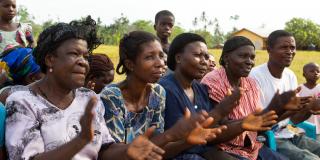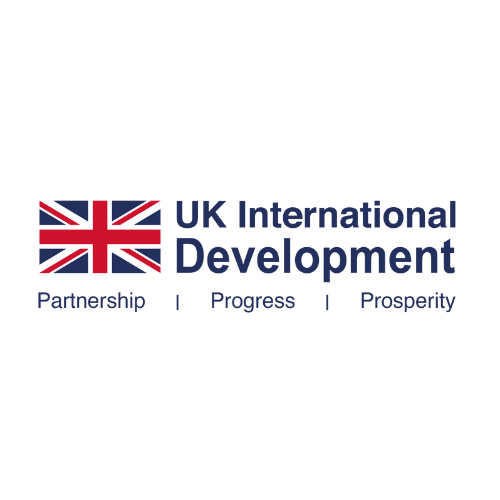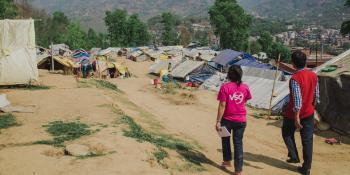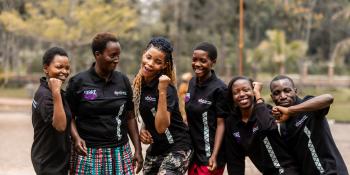
While all countries have signed up to achieving the Sustainable Development Goals (SDGs), they are not legally binding, and so when member states made commitments towards them in 2015, it was decided a space was needed for monitoring and accountability towards their progress.
Each year, the HLPF (High Level Political Forum) at the UN puts a spotlight on member states to hold them accountable for their delivery of the SDGs, while also providing an opportunity for peer learning and reflection amongst governments. All countries, whether developed or developing, are equally obliged to participate in regular Voluntary National Reviews (VNR).
Around forty countries report on their own progress at the HLPF in New York each year. There is also a formal role for civil society organisations, including VSO, to respond within this process, ensuring that the information presented to the HLPF accurately reflects member states’ progress towards the SDGs and that the overall VNR process includes the voices of individuals and communities not represented within official government reports.
What we do
A key part of VSO’s regional policy and advocacy work across Africa and Asia-Pacific is concerned with VNR processes. We work to ensure that the voices of marginalised communities feed into official government VNR processes, and that civil society organisations like VSO are able to feedback on SDG progress through our membership of the Volunteer Groups Alliance, one of seventeen major stakeholder groups recognised by the UN.
This is important as national governments often do not consult widely when compiling their own VNRs, and also works to raise awareness of governments’ obligations around the SDGs towards their own citizens. Since 2015, we have assisted with VNR processes in Bangladesh, Pakistan, Nepal, India, Thailand, Philippines, Kenya, Nigeria, Sierra Leone, Malawi, Mozambique, Ethiopia, Tanzania, Rwanda, Uganda and Zimbabwe.
Gathering citizen voices
In order to gather the voices of individuals and communities, we typically run what are called ‘community dialogues’. Facilitated by VSO volunteers, these take place in local communities, where ordinary citizens learn about the SDGs and their governments’ commitments to deliver on them, and share their own views and experiences about the extent to which the SDGs have been progressed towards in their own communities. We use methods such as community score-cards and interactive dialogues to help individuals and groups monitor the quality of local service provisions.
In some cases, VSO organises these dialogues with specific groups, such as youth, LGBT groups, or those marginalised by caste or ethnicity, to ensure that evidence is collected from groups not normally represented in national and global processes. Once evidence has been gathered, VSO staff and volunteers work to prepare reports which collate the views and evidence which have emerged. Some of these are submitted to national governments, and some feed into reports delivered directly to the UN.
In 2020, we submitted the ‘Citizens Voices Nepal’ report to the UN to help incorporate the voices of some of Nepal’s most marginalised groups into the VNR reporting process, giving a fuller picture of Nepal’s progress and highlighting where some groups are not being reached by progress towards the SDGs.
Influencing policy change
VSO’s work on the SDGs have helped to influence the development and implementation of policies related to the SDGs, with an emphasis on the role of volunteering. For example, VSO Pakistan was involved in the development of provincial SDG frameworks, where through the tools we provided for consultations, these frameworks for development were able to incorporate the priorities of marginalized communities to plans for SDG implementation worked for different communities across Pakistan.
Using a similar approach, VSO Nepal also worked to influence provincial and local level policies related to SDG implementation across the country. The government have now considered volunteering as a key means of delivering their agenda for development, echoing the UN’s stated view that achievement of the SDGs will not be possible without volunteering
Creating more open societies
In the countries where VSO works, there is often limited civil society space, with few opportunities for ordinary people to make their voices heard to local and national governments. Citizens do not always understand the obligations their governments have to progress towards the SDGs, and individuals and communities do not feel they are able to hold authorities to account on service delivery and progress towards development. This is particularly true for those from marginalised groups, including women, young people and those who face discrimination on the basis of caste or ethnicity.

In countries with little history of democracy, or those undergoing democratisation processes, we believe that this
kind of work is a vital part of encouraging more open societies; informing citizens of their government’s obligations towards them, helping them to discuss and reflect on government policies and the impact on their own lives, and embedding the view that governments should be accountable to citizens for progress towards sustainable development.
This work is funded by UKAid under the ‘Volunteering for Development’ programme which seeks to improve access to basic services and opportunities, increase the agency of extremely poor and vulnerable people and build their resilience to the shocks and stresses that threaten their advancement from poverty.

UK Aid Volunteering for Development
Driving volunteer impact to deliver improved health, education and livelihoods outcomes for two million people.

Influencing and advocacy
VSO influences policy at national, regional and international levels. We bring the experience of volunteers, partners and marginalised people to decision makers.
